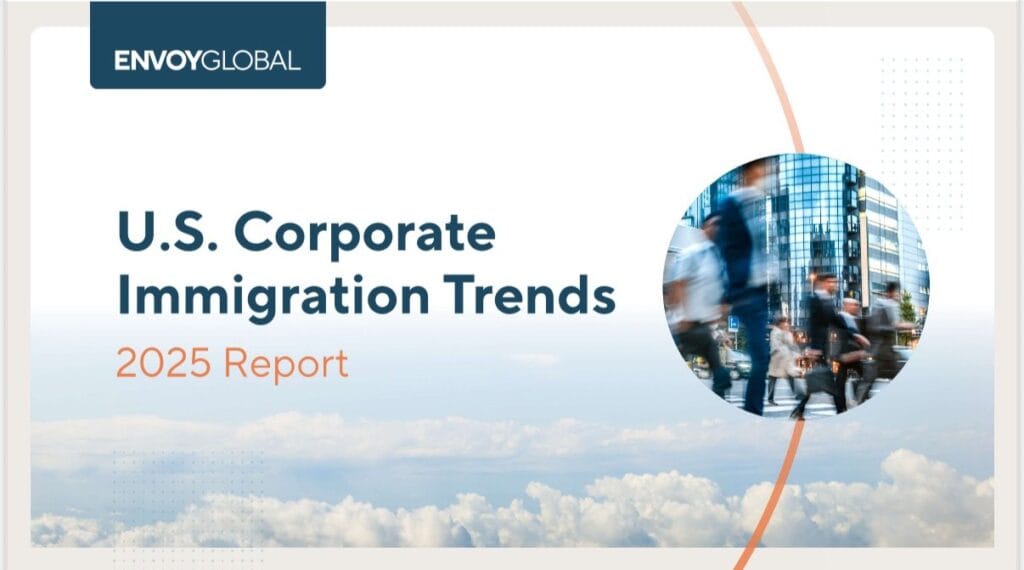More Global immigration news from around the world!
Additional global immigration updates from around the world. Catch up on global immigration information below relating to New Zealand and the United States.

New Zealand: Changes to online applications lodged by unlicensed or non-exempt people
On Sunday 30 March 2025, changes to the Immigration Advisers Licensing Act 2007 came into effect giving Immigration New Zealand (INZ) new powers when processing applications.
From Monday 31 March 2025, INZ will decline online applications that have been automatically accepted by their online systems or paper application if it is confirmed to have been submitted or prepared by, or if the applicant has confirmed to have received advice from, an unlicensed or non-exempt person.
Paper based applications believed to have been submitted or prepared by, or if the applicant has received advice from, an unlicensed or non-exempt person, will continue to not be processed and will be returned to the applicant.
Immigration advice must come from a Licensed Immigration Adviser, a New Zealand lawyer with a current practicing certificate, employees of a lawyer or a law firm, or someone else legally able to provide immigration advice.
It is the applicant’s responsibility to ensure that the information provided with their application is honest and complete. The provision of false, misleading or withheld information may result in INZ declining the application and may also adversely impact future applications.
Those who need advice on their application can find a licensed adviser on the Immigration Adviser Register or current practicing lawyers on the New Zealand Law Society Register.
INZ encourages applicants to do their research and verify their adviser’s credentials, before submitting an application to avoid unnecessary delays or declines.
If an application has been declined or returned, INZ will provide advice on how to resubmit the application correctly.
Those who believe they have been working with, or have been misled by, an unlicensed or non-exempt person can contact INZ to discuss their circumstances or make a complaint to the Immigration Advisers Authority.
Changes to Interim Visas
From 8 April 2025, applicants will be granted interim work rights if they apply for an Accredited Employer Work Visa (AEWV) while holding any type of work visa or from a student visa that permits work during term time.
The following work rights are included:
• The applicant is allowed to take up the job specified in their new AEWV application (connected to their Accredited Employer’s Job Check), enabling them to move into the job more quickly;
• The time spent on an interim visa with work rights counts towards work experience needed for work to residence pathways; and
• For a person applying for a second or subsequent AEWV, time spent on an interim visa with work rights counts towards the maximum period they can stay in New Zealand on their AEWV. The maximum continuous stay period excludes any time spent on an interim visa granted before the applicant’s first AEWV.
United States: FY 2026 H-1B Initial Registration Selection Process Completed
On 31 March 2025, US Citizenship and Immigration Services (USCIS) announced that it has received enough electronic registrations for unique beneficiaries during the initial registration period to reach the fiscal year (FY) 2026 H-1B numerical allocations (H-1B cap), including the advanced degree exemption (master’s cap).
USCIS has randomly selected enough beneficiaries with properly submitted registrations projected as needed to reach the H-1B cap and have notified all prospective petitioners with selected beneficiaries that they are eligible to file an H-1B cap-subject petition for such beneficiaries.
Registrants’ online accounts will display a registration status.
H-1B cap-subject petitions for FY 2026, including those petitions eligible for the advanced degree exemption, may be filed with USCIS beginning 1 April 2025, if filed for a selected beneficiary and based on a valid registration. Only petitioners with registrations for selected beneficiaries may file H-1B cap-subject petitions for FY 2026.
An H-1B cap-subject petition must be properly filed at the correct filing location or online at my.uscis.gov and within the filing period indicated on the relevant selection notice. The period for filing the H-1B cap-subject petition will be at least 90 days. Petitioners must include a copy of the applicable selection notice with the FY 2026 H-1B cap-subject petition.
Petitioners must also submit evidence of the beneficiary’s valid passport or travel document used at the time of registration to identify the beneficiary.
Petitioners filing for selected beneficiaries based on their valid registration must still submit evidence or otherwise establish eligibility for petition approval, as registration and selection only pertains to eligibility to file the H-1B cap-subject petition.
USCIS Updates Policy to Recognize Two Biological Sexes
US Citizenship and Immigration Services (USCIS) is updating the USCIS Policy Manual to clarify that it only recognizes two biological sexes, male and female.
Consistent with the 20 January 2025 executive order, Defending Women From Gender Ideology Extremism and Restoring Biological Truth to the Federal Government, USCIS is returning to its historical policy of recognizing two biological sexes.
Under this guidance, USCIS considers a person’s sex as that which is generally evidenced on the birth certificate issued at or nearest to the time of birth. If the birth certificate issued at or nearest to the time of birth indicates a sex other than male or female, USCIS will base the determination of sex on secondary evidence.
USCIS will not deny benefits solely because the benefit requestor did not properly indicate his or her sex. However, USCIS does not issue documents with a blank sex field, and does not issue documents with a sex different than the sex as generally evidenced on a birth certificate issued at the time of birth (or issued nearest to the time of birth). Therefore, if a benefit requestor does not indicate his or her sex or indicates a sex different from the sex on his or her birth certificate issued at the time of birth (or issued nearest to the time of birth), there may be delays in adjudication.
USCIS may provide notice to benefit requestors if it issues a USCIS document reflecting a sex different than that indicated by the benefit requestor on the request.
This guidance, contained in Volumes 1, 11, and 12 of the Policy Manual, is effective immediately and applies to benefit requests pending or filed on or after 2 April 2025. The guidance contained in the Policy Manual is controlling and supersedes any related prior guidance.
Expert advice on global immigration
Smith Stone Walters is now part of Envoy Global, the leading corporate immigration services provider committed to delivering a better way for companies to manage global immigration.
This partnership will greatly enhance our global footprint and enable us to meet the growing needs of our clients even more effectively.
If you would like to find out more about the enhanced level of global immigration services now available to your business, please contact us today.















